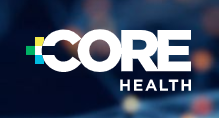
Recently, the Healthcare Internet Conference (HCIC) in Orlando gave healthcare marketers a deep dive into the evolving landscape of digital marketing. I had the pleasure of listening to many healthcare marketing leaders discuss the current state of the industry and hypothesize what’s next as we move into 2020. It’s hard for a recap to do justice to the entire scope of a conference, but here are a few of the themes I heard from the sessions I attended that sync-up with what we have been seeing when we work with our healthcare marketing clients.
Accessibility has become a hot topic recently due to some high profile court cases. While litigation risk is definitely a motivator, the goal should be to make electronic and information technology accessible to more people, including those with disabilities. This is done by applying the POUR principle. Accessible technology needs to be:
To accomplish this, organizations need to come up with an ADA plan for their website and activate it with a culture of compliance within their organization. Marketing can help lead the charge because of our dedication to protecting the brand. The reality is that helping more people is good for that brand. Addressing accessibility is also good for the community (helping more people) and the business (making good on its mission). Mitigation of legal risk is a side effect.
Choosing a doctor can be a daunting, high stress task. Providing a star rating is not good enough. What differentiates a group of physicians all with nearly identical star ratings? We talk about unique value proposition all the time for organizations. But health systems are a collection of individuals, all with something unique to bring to their patients. So why is it that so much time and effort is put into developing a unique brand and content for organizations, but online profiles for physicians consistently look like one another?
The reality is that physicians are incredibly busy. They also aren’t usually trained to communicate their why and how. We need to help them with a content strategy that helps patients be better able to differentiate between their options to make the best choice. The common belief that consumers have no attention span does not apply here. Patients are not like every other consumer. When dealing with one’s health, patients will take whatever time is necessary to feel confident they made the right decision. This doesn’t mean we need highly polished, perfect content for each and every profile. People aren’t perfect, so why are we so obsessed with perfection when it comes to producing content for our brands? An iPhone video or a “too long” manifesto from a physician can be incredibly effective as long as it comes across as authentic.
I thought Chrissy Daniels of Press Ganey Associates put it great when she said that not having content on your physician profile page is the equivalent to having an unlisted phone number. You won’t be found and you won’t be chosen.
The idea that your website is the first thing patients encounter online for your organization might have been true years ago but it is no longer the case. According to a recent study, 50% of Google searches ended without a click on an organic or paid search result. This is at least partially due to users getting what they need directly on the search results page. So if users aren’t clicking through to your website to answer questions, get directions, or find contact information you can not rely on providing a great introductory experience that way. Keeping data and content up to date on your website is no longer good enough. You need to be sure that content is correct across the web.
This means online reputation management (ORM). The process for implementing an effective ORM program is a large topic. While commonly spearheaded by marketing, ORM can’t be done properly without a team that spans the organization. Ensuring location data is correct, physician information is accurate and compelling, and reviews are being solicited, generated and responded to across the web requires operational changes. There are some great software platforms that can help you get started on your journey. This approach can (and will) integrate with public relations, social media and messaging development. Two sides of the same coin and you should be prepared to make an impact with both.
Google has evolved from showing a list of blue search results to now showing answers. Nowhere is this more important than in voice search where a user asks a question and is presented with a single curated answer. There are technical and content considerations that need to be addressed to make sure your content is accessible for voice queries.
Whereas users who do a text search might not leave the search results page to get answers, voice search users don’t see those results at all. They get one answer to their question. So it is even more imperative that content is correct across the web and optimized on your website to answer the questions being asked. This content optimization requires good research to understand the questions being asked and properly formatting answers to help Google understand how they should present the answer.
While not the only themes that existed at this year’s HCIC conference, these were some topics I brought back with actionable items. We would love to hear what others took away from HCIC 2019.

Bob Prohaska, Director of Digital Experience
The original version of this page was published at: https://health.corecreative.com/insights/healthcare-digital-marketing-themes-for-2020/
Core Creative is an award-winning strategic creative agency driven by a Boundless Pursuit of Better. Better creativity. Better cultures and communities. All to help others live their calling. We be... Read more
How to Better Align Marketing & Sales in B2B HealthcareInterdepartmental relationships, especially in complex B2B organizations, require regular maintenance to run smoothly. After ...read more
Quick ideas for promoting non-COVID-19 service lines“Now’s not the time to get injured.” It’s a phrase I repeat in my head every time I’m chopping vegetables ...read more
Marketing technology can give you a competitive advantage and provide significant ROI- By Angi Krueger, Vice President of Marketing and Business Development at Core Health.Recently, ...read more
Boosting a cardiology service line with Core HealthThis healthcare case study provides insight into patient acquisition strategies to drive service line growth and get more patients. ...read more

the Touch Point podcast
Hear the latest from industry experts on healthcare marketing and digital experience strategies in this weekly podcast.